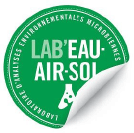Everything you need to know about the annual cooling tower information return (ITRE)
If you own a cooling tower (ITRE), don’t forget that you have certain obligations under Section VII: Provisions for the maintenance of a water-cooled cooling tower installation of the Building chapter of the Safety Code (CBCS). Since January 2018, the Régie du bâtiment du Québec (RBQ), has been mailing you an information transmission form that […]
 MEMBRE DU GROUPE EXPERTBÂTIMENT
MEMBRE DU GROUPE EXPERTBÂTIMENT